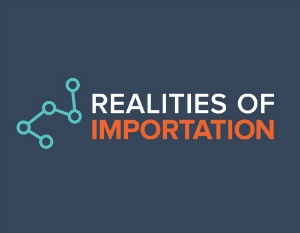This week, the Wall Street Journal took a closer look at the very real threat drug importation poses, detailing how such schemes expose Americans to dangerous counterfeit medicines. The reporter put a human face to the threat, describing how a young man lost his life after unknowingly taking a counterfeit medicine laced with deadly counterfeit fentanyl.
Tragedies like this are why the U.S. Food & Drug Administration (FDA) has taken great strides to stem the flow of counterfeits into the United States through fake online pharmacies. In June and August, for example, the FDA cracked down on more than 50 websites known to be illegally selling unapproved or fake versions of opioids. This progress is a step in the right direction, but more needs to be done to protect Americans. Here are a few key points on the complexities the article raises:
- Criminal organizations are getting smarter and using social media to target potential victims. “‘Millennials and those younger rely heavily on social media,’ says Alex Khu, assistant director of the U.S. Immigration and Customs Enforcement’s Global Trade Investigations division. ‘Criminal organizations recognize that trend and we’re starting to see advertisements and sales of counterfeit or substandard prescription drugs on social media sites.’”
- Online pharmacies paint themselves as legitimate, but many are far from it. “The National Association of Boards of Pharmacy reviewed nearly 12,000 internet drug outlets selling prescription medications to U.S. patients. Of these, about 95% were found uncompliant with state and federal laws and NABP standards, according to a report published in September, which highlighted the role social media sites play.”
- Counterfeit medicines flood the online market. “Last year Pfizer global security conducted a pilot program with law enforcement and bought 138 Xanax samples on the dark web. They tested them and found only seven, or 5%, were authentic. Products included pills that looked exactly like Xanax but were counterfeit, as well as gummies.”
- The threat of counterfeits continues to grow. “Thomas Kubic, president and CEO of the Pharmaceutical Security Institute, a Virginia-based nonprofit, says there are roughly 15,000 to 17,000 annual cases of counterfeit drugs reported globally to his organization from its members, who include security directors from 33 pharmaceutical companies. The number of new reported cases was 1,178 from 134 countries in 2017, up 7% from 2016, he says. Cases ranged from small quantities to millions of units.”
Far too many American lives are put at risk by the consumption of counterfeit medicines purchased online and illegally shipped to the United States. Proposals to allow drug importation schemes unnecessarily increase the potential danger to Americans and impose a large burden on law enforcement officials already tasked with helping address the opioid epidemic. Policymakers should think twice before supporting a policy that exposes their constituents to dangerous counterfeits.
Learn more at PhRMA.org/Importation.



